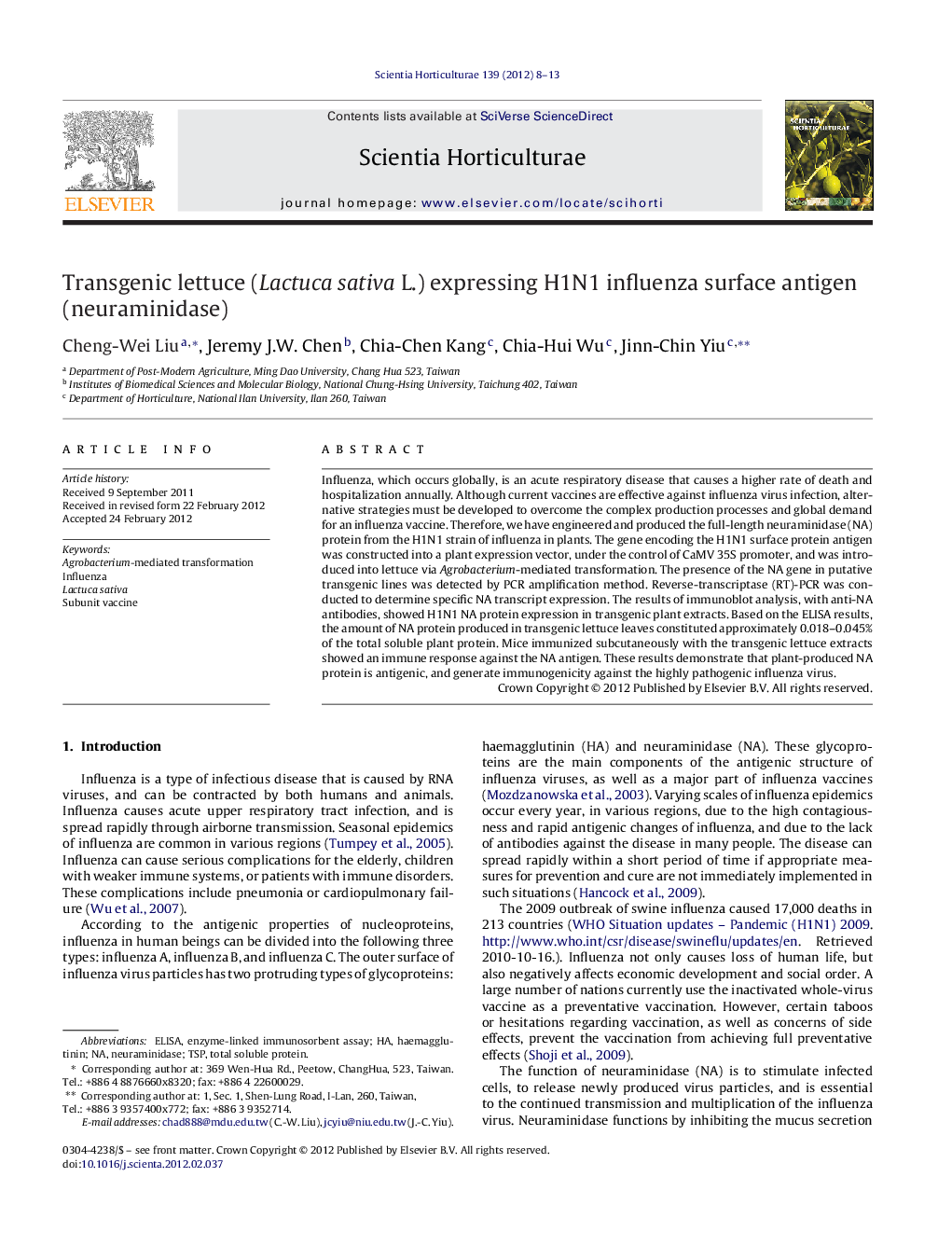| Article ID | Journal | Published Year | Pages | File Type |
|---|---|---|---|---|
| 4567728 | Scientia Horticulturae | 2012 | 6 Pages |
Influenza, which occurs globally, is an acute respiratory disease that causes a higher rate of death and hospitalization annually. Although current vaccines are effective against influenza virus infection, alternative strategies must be developed to overcome the complex production processes and global demand for an influenza vaccine. Therefore, we have engineered and produced the full-length neuraminidase (NA) protein from the H1N1 strain of influenza in plants. The gene encoding the H1N1 surface protein antigen was constructed into a plant expression vector, under the control of CaMV 35S promoter, and was introduced into lettuce via Agrobacterium-mediated transformation. The presence of the NA gene in putative transgenic lines was detected by PCR amplification method. Reverse-transcriptase (RT)-PCR was conducted to determine specific NA transcript expression. The results of immunoblot analysis, with anti-NA antibodies, showed H1N1 NA protein expression in transgenic plant extracts. Based on the ELISA results, the amount of NA protein produced in transgenic lettuce leaves constituted approximately 0.018–0.045% of the total soluble plant protein. Mice immunized subcutaneously with the transgenic lettuce extracts showed an immune response against the NA antigen. These results demonstrate that plant-produced NA protein is antigenic, and generate immunogenicity against the highly pathogenic influenza virus.
► To overcome complex production processes and global demand for an influenza vaccine. ► Alternative strategies need to be developed against influenza virus infection. ► Lettuce plants were genetically engineered to produce the immunogenic protein NA. ► Mice were immunized subcutaneously, using lettuce for the production of NA immunogen. ► This is the first report on the production of the NA in a foreign host.
